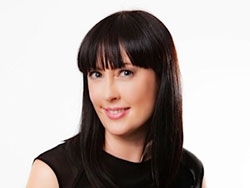Paul McNamara wants to encourage other
mental health nurses to tap into the
benefits of social media.
The Cairns clinical nurse specialist has built up an extensive professional social media profile with a presence on platforms spanning Twitter, where he has more than 1700 followers, Facebook, YouTube and Instagram.
Subscribe for FREE to the HealthTimes magazine
Mr McNamara, who is also a nursing lecturer at James Cook University, will share his social media know-how at the Australian College of Mental Health Nurses’ (ACMHN) eighth primary mental health care conference,
‘Primary mental health care in the digital age’, being held from March 13-14.
A nurse of 27 years, Mr McNamara says many mental health nurses are reluctant to brave the digital space but he hopes his presentation will encourage more of his mental health colleagues to connect with a wide-range of people and expand their professional horizons online.
“Mental health nurses have a really strong sense of professional boundaries - not to mix up personal life and professional life,” he says.
FEATURED JOBS
St Vincent's Private Hospital
“When they are engaging with individuals who are there experiencing mental health problems at the time, we try to do so in a warm, compassionate way of course but we make sure that it’s a professional relationship and not to blur those boundaries.”
Mr McNamara says mental health nurses can overcome their concerns by separating their professional and personal online identities with separate social media accounts.
“For my personal accounts I give myself a pseudonym, which my family and friends know…but I just keep that separate and use my full name and make myself easy to find in the professional social media stuff,” he says.
“I’m sure patients and colleagues and potential employers would Google me every now and again and I want to be in control of what they find.”
Mr McNamara established his
‘meta4RN’ online portfolio several years ago, including a blog, to keep pace with how people communicate in the digital age.
“Not getting left behind is my goal,” he says.
“The way that people are communicating with each other has changed. It kind of drives me to stay up with all of this stuff.
“It wasn’t really until several years ago that I thought that I should establish a professional social media portfolio because I was finding it a little bit difficult to talk about work stuff on platforms that I was mostly using just for fun and communication.
“So about four to five years ago that’s when I established the meta4RN portfolio as a way to separate my professional life from my personal life online.”
Alongside his blog, Mr McNamara creates YouTube videos with one of his most popular,
‘Thinking health communication? Think mobile’, featuring examples on how to use SMS communication in the health sector, which has received more than 4300 views.
“It’s very simple - it gives six clinical examples of using SMS in a work sense so I don’t think it’s particularly clever but you can tell that story quickly and make it appealing, and just get the job done,” he says.
Mr McNamara says Twitter is his favourite social media platform, which enables him to connect with nurses world-wide along with organisations and health consumers.
He says it was heartening to see how the nursing profession on Twitter reacted to the news of the suicide of a British nurse in the wake of an Australian radio prank in 2012.
“It was a really lovely example to me, when the media was going ‘troppo’ over the whole thing, the nurses on Twitter stayed sensible and calm and just talked their way through these issues collectively with the Twitter chat,” he says.
“That single event really turned me from being I guess an enthusiast to an evangelist - I thought that was terrific the way that that happened.
“There’s this whole world-wide conversation that is going on (on social media) and I don’t see why mental health nurses should choose not to be a part of it.”
Up to 120 delegates are expected to attend the Canberra conference.













